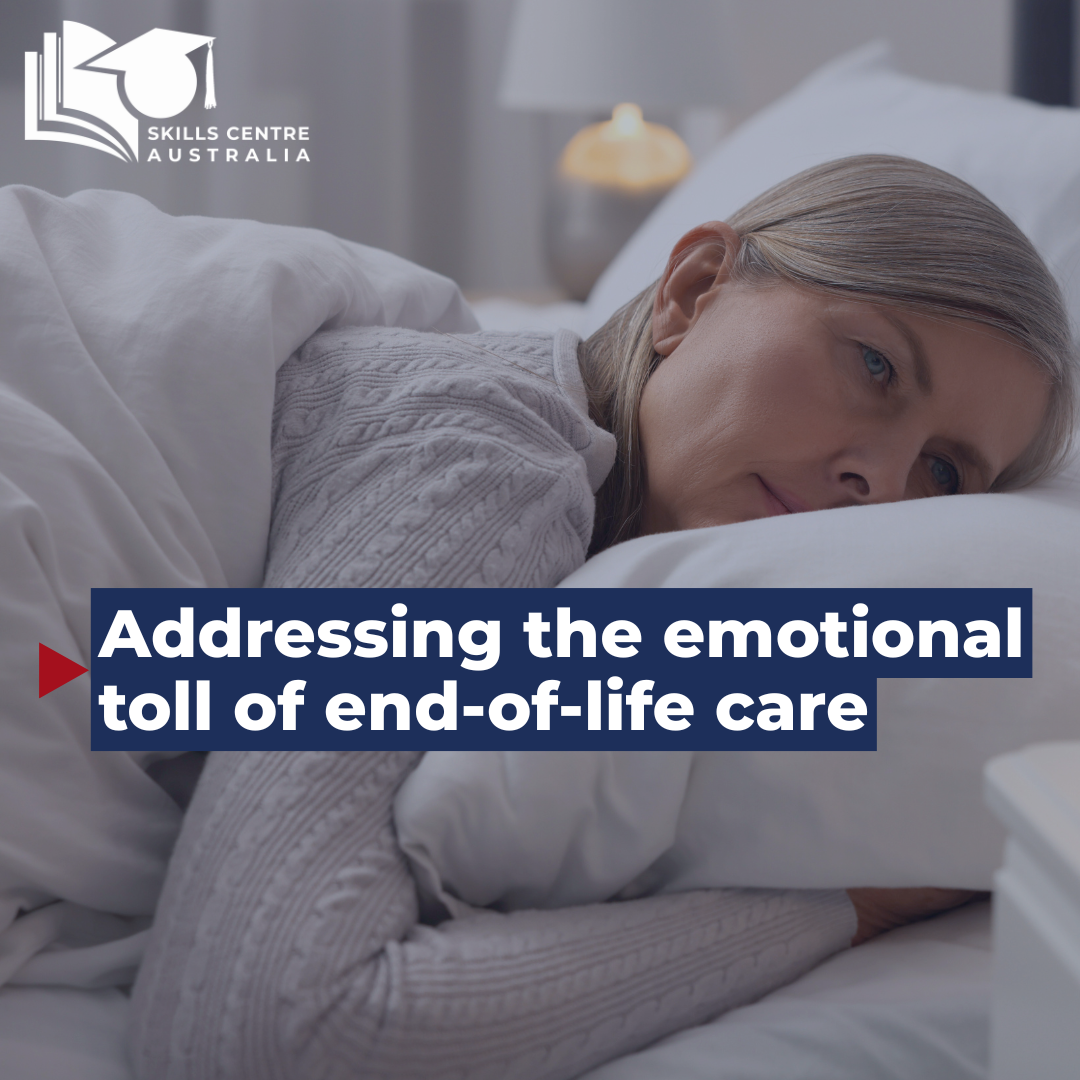As Australia’s population ages, more people are living longer and experiencing the final stages of life later than ever. This demographic shift has made end-of-life care an increasingly important part of the healthcare system. Currently, around half of Australians aged over 85 die in aged care settings, reflecting the significant role these services play in supporting older Australians and their families. But while much attention is given to the needs of residents and their loved ones, the grief experienced by those who care for older Australians often goes unnoticed.
Skills Centre Australia works closely with healthcare workers in aged care and community settings, gaining insight into the emotional challenges they face. With trainers who have worked closely in these environments, we understand how deeply grief can affect those in care roles.

Aged care workers (whether in residential facilities, community services, or home care) develop meaningful relationships with the people they support. Their role goes far beyond completing routine tasks as they actively engage with them, forming bonds that can be both rewarding and emotionally challenging.
For many staff, the death of a person in their care can represent a significant loss. Having spent a good portion of time supporting an individual, staff may feel the impact of grief intensely, especially when they have been present during the end-of-life process. In some cases, they may not have the opportunity to say goodbye, particularly if clients die in hospital or outside their usual care environment. This can leave carers with unresolved feelings of sadness or guilt, even as they continue to support families and loved ones navigating their loss.
The repeated exposure to death can result in cumulative grief, where emotional strain builds over time. While aged care workers can find meaning and satisfaction in their roles, regular encounters with death can be draining and, in some cases, lead to emotional burnout. Staff may feel the need to detach or adopt a more clinical approach to manage their feelings. Workload pressures, staff shortages, and high client-to-carer ratios can exacerbate these effects, making it even more difficult for staff to process grief and maintain resilience.
Supporting the wellbeing of aged care staff is essential, both for the individuals and for the quality of care provided to older Australians. Organisations can take practical steps to help carers manage grief, such as:
- Acknowledging the emotional bonds that develop between staff and clients,
- Offering opportunities for reflection and debriefing, and
- Allowing time for personal processing after a client’s death.
Encouraging self-care practices, such as regular breaks, peer support, and physical activity, can also help staff maintain emotional balance and resilience.
Specialised training can also enable workers to navigate the challenges of end-of-life care. Skills Centre Australia’s Palliative Care course, for instance, covers essential areas such as communication, key stages, advanced care planning, medication, and practical care techniques.
Beyond organisational support, broader societal attitudes towards death also influence carers’ experiences. In many communities, death is considered a private or uncomfortable subject, which can make it harder for staff to openly discuss their grief or seek support. Normalising conversations about end-of-life experiences and recognising grief as a natural response can reduce stigma and help carers feel validated in their emotional responses.

As Australia continues to rely on the dedicated workforce of aged care workers, it is important to acknowledge the emotional toll they face. Providing structured grief support, encouraging self-care, and promoting a culture that values emotional wellbeing are essential strategies for maintaining a resilient and supported team. In doing this, the sector can ensure older Australians continue to receive compassionate, high-quality care in their final years, while protecting the wellbeing of the staff who provide it.
Skills Centre Australia supports this goal by offering specialised training and resources designed to equip healthcare workers with the skills and resilience needed to navigate the challenges of end-of-life care.
To enrol in our Palliative Care course, give our friendly team a call on (08) 8340 6875, via email on info@kcskillscentre.com.au, or through the website www.kcskillscentre.com.au.

